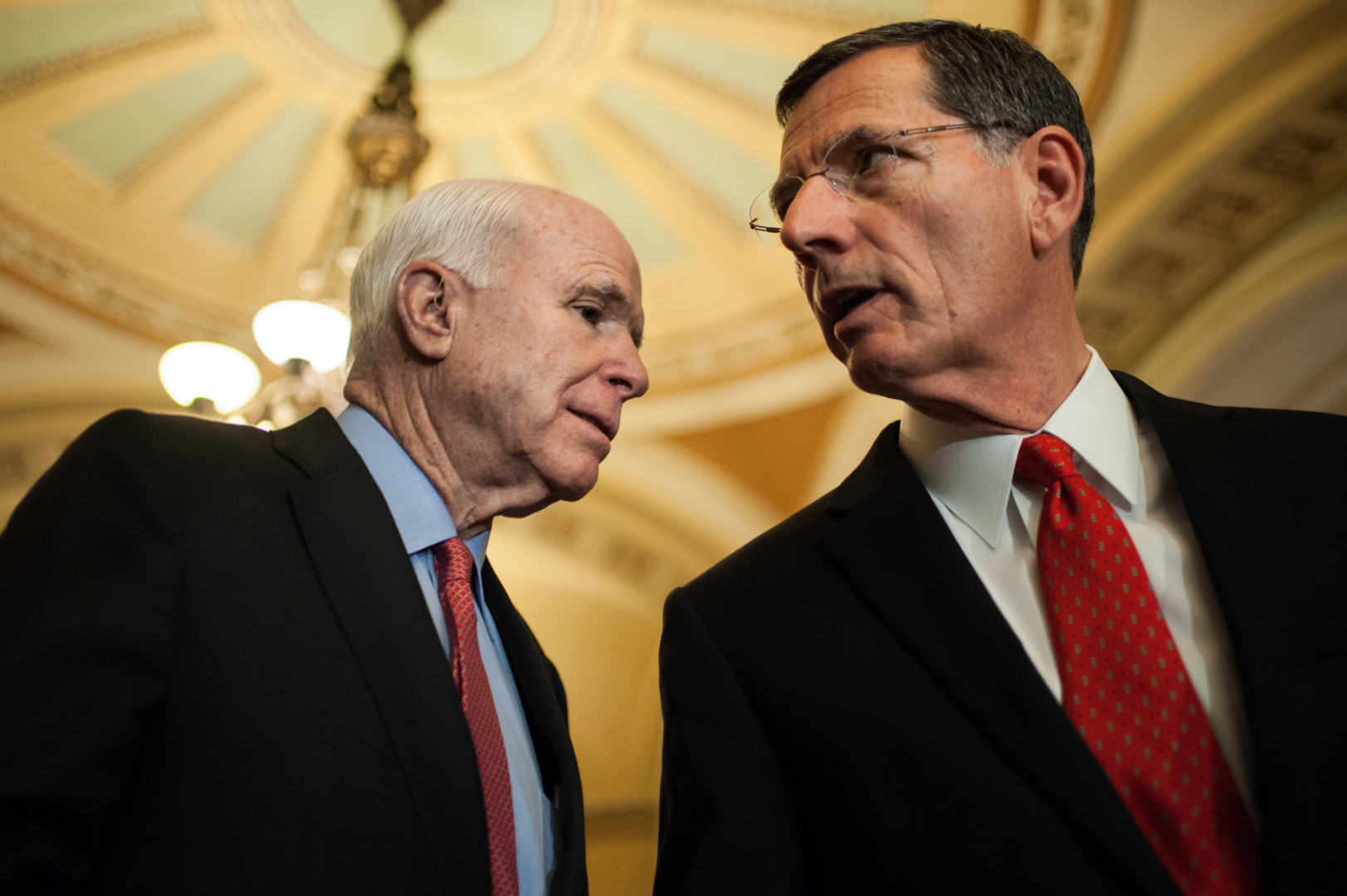May 10, 2017 at 2:43 pm ET
- Share on Facebook
- Share on Twitter
- Share on LinkedIn
- E-mail to a friend



In an unexpected move, several Senate Republicans helped prevent a final vote on a resolution that would scrap an Obama-era rule limiting methane emissions in oil and gas production. By not moving forward with the measure, the Senate missed its last chance to get rid of the environmental regulation promulgated by the Obama administration.
The 49-51 vote against cloture included opposition from all Democrats, as well as GOP Sens. John McCain (Ariz.), Lindsey Graham (S.C.) and Susan Collins (Maine). The outcome marked the first time since Election Day that Republicans failed in their use of the Congressional Review Act to repeal a rule finalized by the previous administration.
The Bureau of Land Management rule, finalized on Nov. 18, curbed methane emissions from venting and flaring — typical processes in oil and gas production — on public land by imposing a cap. The Obama administration said it will save taxpayers money since less natural gas would be wasted and therefore more could be taxed.
But many Republican lawmakers said the BLM does not have the authority to regulate air quality and that the enforcement of the regulation would be too costly for oil and gas companies, driving down production and encouraging reliance on foreign oil.
Key GOP senators had planned to scrap the rule under the Congressional Review Act, a law that allows Congress to block executive actions within 60 legislative days and one that senators have used several times this year to block Obama-era environmental regulations.
The Senate had until Thursday to get rid of the venting and flaring rule. The House passed the resolution on Feb. 3 on a 221-191 vote,
Democrats overall oppose the resolution, saying the rule is an efficient way to fight pollution and the waste of methane gas.
“When it comes to natural gas production on public lands, the oil industry should embrace the slogan ‘waste not, want not,'” Sen. Ed Markey (D-Mass.) said in a statement after the procedural vote failed.
Sen. John Barrasso (R-Wyo.), who introduced the resolution in the Senate, told reporters that he was disappointed Congress could not stop “one of the most expensive regulations.”
GOP Sens. Cory Gardner (Colo.) and Dean Heller (Nev.) told reporters they were on the fence until the vote. On Tuesday, Sen. Heidi Heitkamp (D-N.D.) told reporters she was undecided; she voted against repeal on Wednesday.
Heitkamp was among lawmakers who faced pressure from environmental advocacy groups and local stakeholders to keep the cap on gas venting and flaring.
“These people heard from their constituents that they did not want their natural resources wasted,” said Conrad Schneider, advocacy director for the Clean Air Task Force, an environmental group.
In a press call on Monday, Senate Energy and Natural Resources ranking member Maria Cantwell (D-Wash.) said the CRA “blocks those in Congress who might be ready for a discussion or a change or a communication about the rule from having that communication and suggesting any legislation about the rule.”
Cantwell’s argument may have persuaded “swing voters” to oppose scrapping the methane rule entirely, as she painted the CRA resolution as too blunt an instrument. McCain said that despite his concern that the BLM rule may be “onerous,” rejecting the CRA was necessary for the Trump administration to continue work on the issue.
“I believe that the public interest is best served if the Interior Department issues a new rule to revise and improve the BLM methane rule,” McCain said in a statement Wednesday. “I look forward to working with my colleagues who voted to proceed to the resolution today.”
Congress has already passed 13 resolutions via the CRA to roll back regulations established near the end of the Obama administration.
After Wednesday’s failed vote, Barrasso called on Interior Secretary Ryan Zinke to change the venting and flaring regulation through the rulemaking process.
“If left in place, this regulation will only discourage energy production, job creation, and economic opportunity across the West,” Barrasso said in a statement.
Jon Reid contributed.